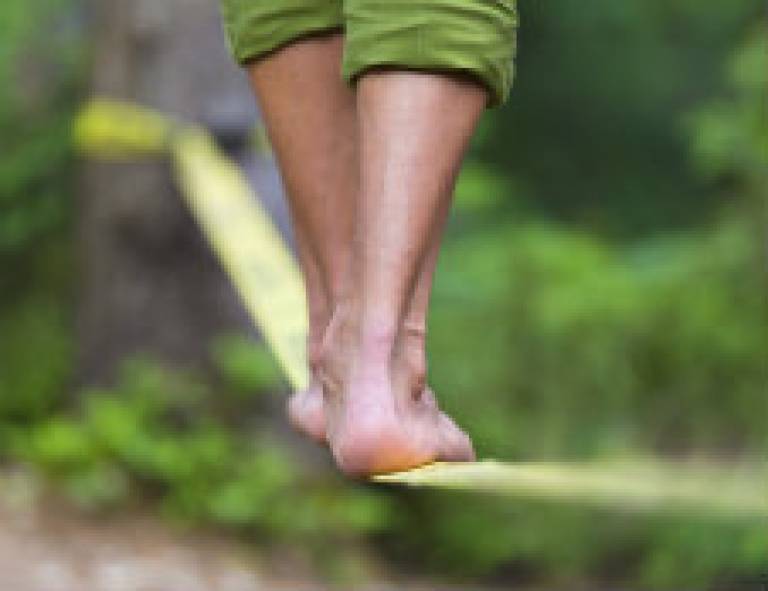Participants needed for a study on the disruption of balance: earn £10 per hour
13 October 2015
Researchers from the Sobell Department of Motor Neuroscience and Movement Disorders are looking for participants aged 18 and over to take part in their study on the disruption of balance.

The aim of this research is to understand how changes in your perceived orientation relative to gravity influence balance control.
In
this preliminary researchers will ask you to sit facing
a screen with dots projected on it. The dots will or will not move. Your task
will be to keep a bar upright in the middle of the dots by turning a knob.
During this session you will also be asked to wear a frame (similar to a spectacle frame) with a small camera to record your eye movements. Researchers will also place a small light above your right eye for the camera. Lastly, a pair of electrodes will be placed just behind each ear and a small electric current will be sent through them to stimulate your balance (vestibular) system.
What would taking part involve?
Taking part in this study will involve one session of 2 hours. Researchers will record the position of the bar you will be controlling and your eye movements during trials. All techniques used are non-invasive. Participants will be paid £10 per hour.
Location: The testing session will take place at 33 Queens Square, London, WC1N 3BG on the 5th floor.
Am I eligible?
You are eligible if:
- you are OVER 18-years old
- you DO NOT have any known neurological, sensory, muscular or orthopaedic disorder
- you DO NOT use glasses or varifocal contact lenses during every-day walking
Contact: If you are interested in taking part or getting further information please email Dr Chris Dakin.
All data will be collected and stored in accordance with the Data Protection Act 1998. This study has been approved by the UCL Research Ethics Committee (Project ID Number): 14/0522
Dr Chris Dakin, Sobell Department of Motor Neuroscience and Movement Disorder, UCL Institute of Neurology
 Close
Close

